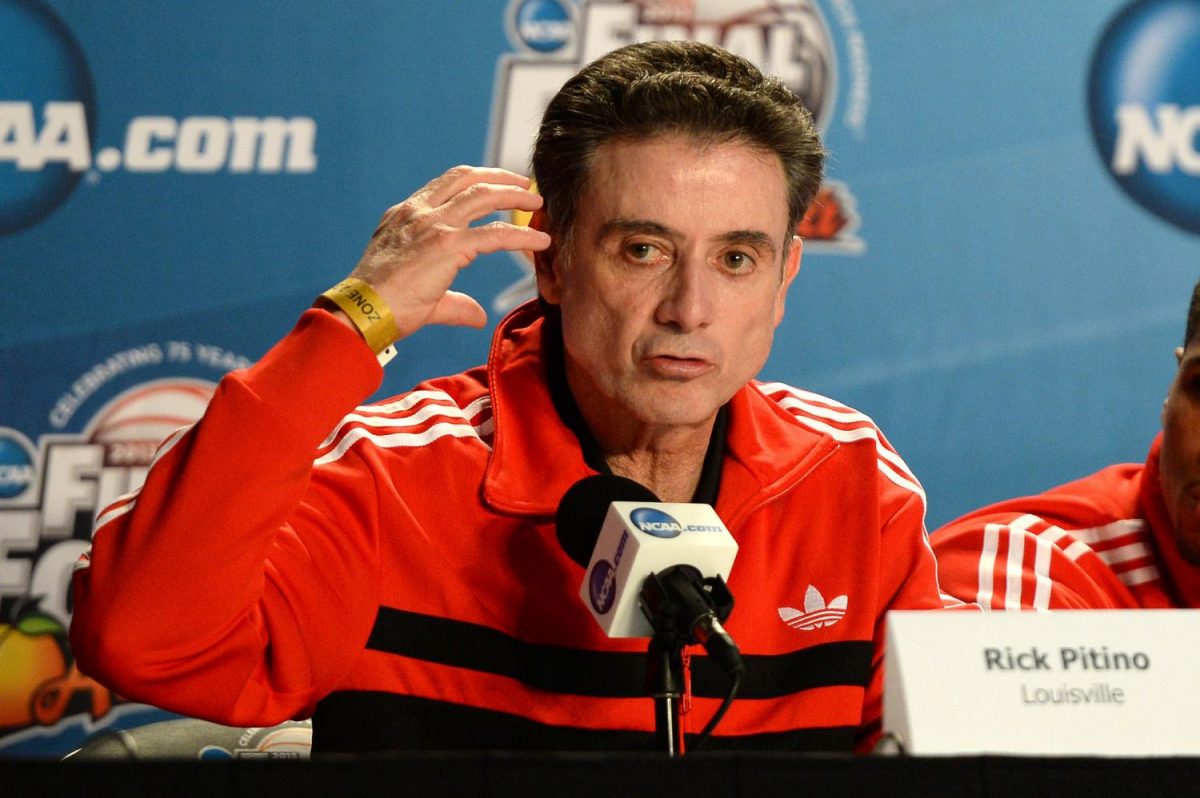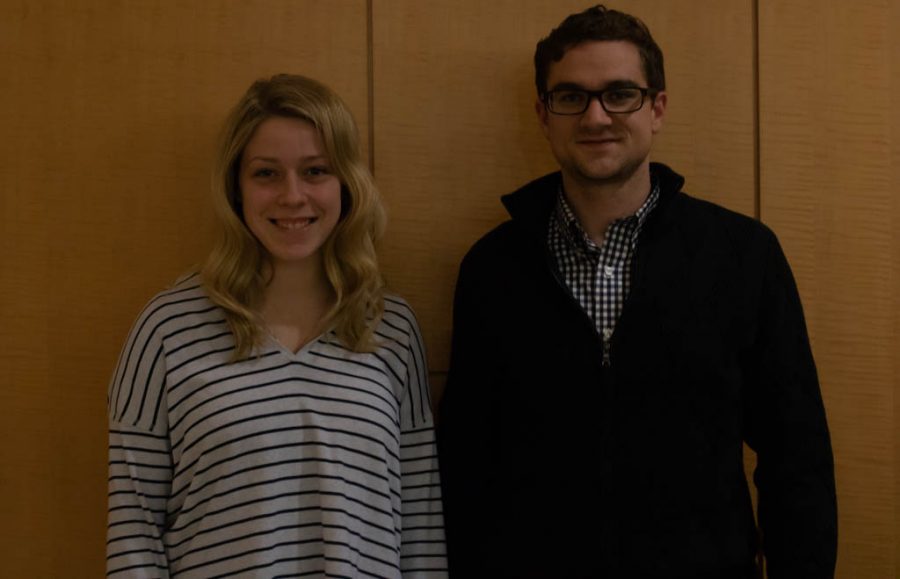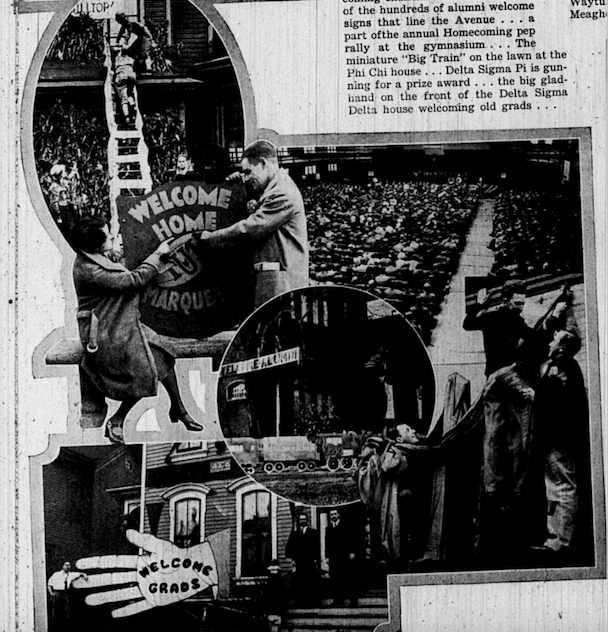When Wil Marino, a sophomore in the College of Engineering, heard about the college admission scandals that included high-profile celebrities, he said he felt upset and that the scandal still bothers him.
Stars like Lori Loughlin, known for her role as Aunt Becky from “Full House”, and Felicity Huffman from her acclaimed role in “Desperate Housewives”, were among other high-profile celebrities who were charged with accounts of bribery and fraud to influence college acceptance decisions by U.S. federal prosecutors March 12.
The New York Times reported that the 11 universities involved in the scandal included Yale, Stanford, Harvard, University of Southern California, Georgetown, Northwestern, University of California—Berkeley, University of California—Los Angeles, University of Southern California, University of San Diego, University of Texas at Austin and Wake Forest University.
“Hearing about bribery in admissions for college is upsetting, because I believe that all colleges should be merit and academic-based when selecting students,” Marino said. “Imagine if a school only took students for their parents’ ability to donate or their national recognition or fame. That would leave those whose parents work hard for their student’s education and students who are geniuses and who worked very hard in high school out of options if they only applied to that school.”
Other students, like Devin McCowan, a sophomore in the College of Arts & Sciences, said it doesn’t bother him as much as long as students can keep up once they actually attend the college.
“I’m personally like, ‘Okay, you cheated your way but now we’re both here so let’s see how you do in the classes,’” McCowan said. “But for a lot of people, they feel that their work should be valued. And I think that’s an American thing, too. We value independence and we value hard work. So if you didn’t work hard and you didn’t do it yourself, you aren’t following the American ideal.”
McCowan said he finds it interesting that this scandal arose in the midst of conversations about Affirmative Action and college admissions.
“There’s just the fact that there is this way to get into college if you have money, but when you’re trying to get into college and you don’t have money, but you’re historically discriminated against and you’re trying to get that affirmative action, it can be an equalizing force in a lot of ways,” McCowan said. “But (affirmative action) gets called into question all the time, but stuff like (this scandal) doesn’t always.”
Parents like Loughlin and her husband and fashion designer Mossiomo Giannulli used large sums of money to convince athletic recruiters to recruit their daughters to the University of Southern California. The daughters had never been on an athletic team at USC.
Huffman used her fame to bribe standardized test proctors in order for her children to receive the accepted scores.
About 50 people were indicted, among them parents of potential college freshmen, athletic recruitment officials and college admission counselors.
Lindsay Barbeau, a senior admissions counselor, said the university has processes in place, such as a honor code statement that students sign when applying, that would prevent this from happening at Marquette.
“This type of ethical behavior is not tolerated,” Barbeau said. “We pride ourselves in being a Jesuit University and therefore upholding the highest standard of ethics. We believe this so strongly that our students are required to take various courses regarding ethical dilemmas.”
As a senior admissions counselor, Barbeau said she finds this scandal very unethical.
“Honestly, I truly believe that this “scandal” is more of a privilege scandal,” Barbeau said. “People involved were using their money to influence decisions and as a whole our office doesn’t condone this. I strongly believe in the value of hard work.”
Marquette University spokesperson Kevin Conway said Marquette embraces a fair admissions process.
“In alignment with our Catholic, Jesuit mission, Marquette University remains committed to ensuring that our holistic admissions process is built on care, compassion and integrity,” Conway said in an email. “Marquette’s history is rooted in educational access—first for immigrants who were not welcomed elsewhere, and then in 1909 when we became the first Catholic university in the world to admit women for undergraduate study.”
Conway said in keeping with the Jesuit practice of “cura personalis”, or “care for the whole person,” Marquette’s rigorous admissions process includes both quantitative and qualitative assessments.
“We are called upon to keep a Marquette education accessible to a diverse population of students, and to offer personal attention and care to each member of our Marquette community, from the application process through Commencement,” Conway said in an email.
Conway said the athletic recruitment process at Marquette also strives to be fair to students.
“The Office of Undergraduate Admissions and the Department of Intercollegiate Athletics work closely together to ensure that all student-athlete standards and processes are lawful and ethical, and are carried out with the integrity required by our Catholic, Jesuit mission,” Conway said in an email. “Anything short of that will not be tolerated.”
Marino said he believes this should be the case at all schools to ensure all students have equal chances at acceptance.
“In my opinion, the unbiased nature of admissions and schools should be mandatory and based on scholarly merit and the things you did in high school, not based on wealth, power and fame,” Marino said.






